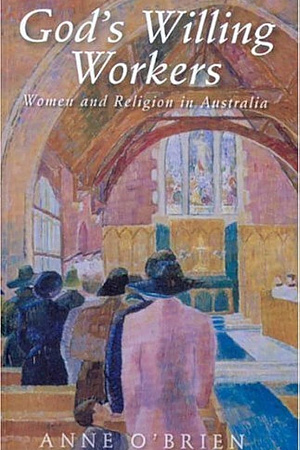Romancing the Tomes: Popular culture, law and feminism
Cavendish Publishing, $99 pb, 332 pp
Uneasy relations
What exactly is popular culture? Does Big Brother really pose an inherent challenge to law? And what connection does the regulation of cyberpornography have with the film Pretty Woman? These are some of the questions I was left with after reading Romancing the Tomes, a cross-disciplinary collection of conference papers exploring the ‘uneasy relationship’ between law and popular culture from a feminist perspective.
In her introduction, editor Margaret Thornton (Professor of Law and Legal Studies at La Trobe University) argues that we must understand the relationship between popular culture and the law as a symbiotic one. While popular culture’s fascination with the law is easily observed in the growth of films, dramas, and reality shows about law, the effect of popular culture on the law is less obvious, but, Thornton argues, no less significant.
Marxists, feminists, and other critical legal theorists have challenged the traditional claims of law to objectivity, impartiality, and autonomy. They have also examined the values and assumptions brought to the process of making and enforcing laws. Thornton employs a similar approach, arguing that popular culture has the potential to corrode the authority of law through its focus on the ‘affective’ side of life – sexuality, desire and the body – which challenges law’s claims to rationality, objectivity, and universality. As many of these essays reveal, however, popular culture is not inherently subversive. Its potential to destabilise legal boundaries is often in spite of itself. Thornton alludes to the tension this creates – that part of the radical potential of popular culture lies in its popularity, but that it risks losing its popularity (and thus its force) once it becomes too self-conscious about its own subversive potential. This tension makes it an intriguing area of study for feminists and others seeking to challenge law’s claim to power.
Continue reading for only $10 per month. Subscribe and gain full access to Australian Book Review. Already a subscriber? Sign in. If you need assistance, feel free to contact us.








Leave a comment
If you are an ABR subscriber, you will need to sign in to post a comment.
If you have forgotten your sign in details, or if you receive an error message when trying to submit your comment, please email your comment (and the name of the article to which it relates) to ABR Comments. We will review your comment and, subject to approval, we will post it under your name.
Please note that all comments must be approved by ABR and comply with our Terms & Conditions.